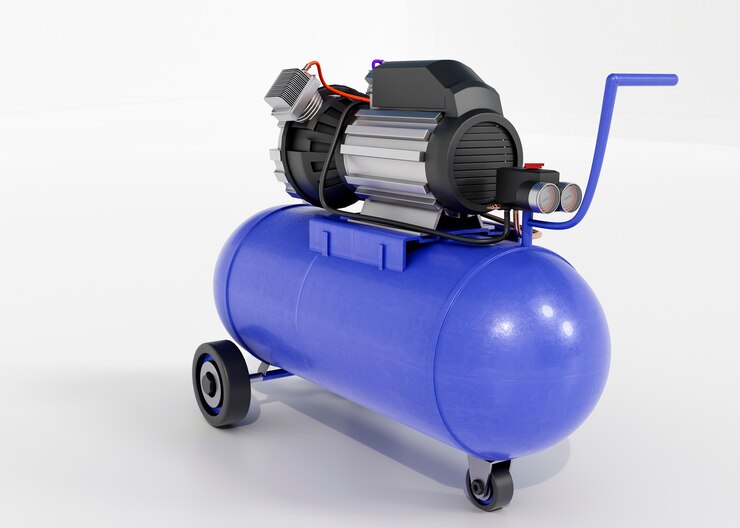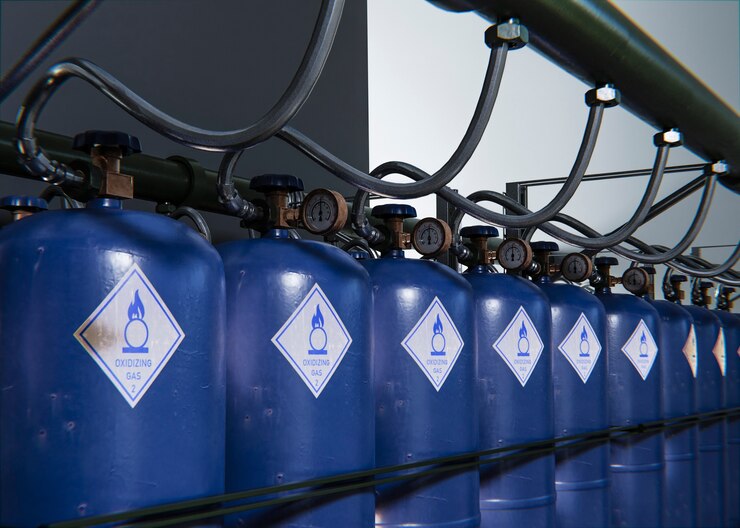Maximizing Efficiency and Longevity: The Essential Guide to Air Compressor Oil
Air compressor oil plays a pivotal role in the optimal functioning and longevity of air compressors, a fact often overlooked in regular maintenance routines. This type of oil is not just a lubricant; it serves multiple critical functions including reducing internal friction, cooling compressor components, and enhancing the effectiveness of seals. The right oil can drastically improve efficiency and extend the life span of an air compressor, making its selection, use, and maintenance key areas of focus for any operator or owner. This blog aims to demystify air compressor oil, providing insights into its importance, the various types available, and guidelines for choosing and maintaining the appropriate oil for your compressor. Whether you’re a seasoned professional or a newcomer to the world of air compressors, understanding the nuances of compressor oil is essential for ensuring your equipment runs smoothly, efficiently, and reliably.
The Role of Air Compressor Oil
Air compressor oil is integral to the efficient and reliable operation of air compressors, serving several vital roles beyond basic lubrication. Firstly, it acts as a lubricant, reducing friction between the moving parts of the compressor. This lubrication is crucial as it minimizes wear and tear, thereby extending the lifespan of the compressor. The reduced friction also enhances operational efficiency, leading to lower energy consumption and operational costs.
Additionally, air compressor oil plays a critical role in cooling. Compressors generate significant heat during operation, and the oil helps in dissipating this heat away from crucial components. By maintaining a lower operating temperature, the oil prevents overheating, which can lead to mechanical failures and reduced efficiency.
Furthermore, oil in air compressors aids in sealing. It enhances the effectiveness of seals within the compressor, preventing air leaks which can diminish the compressor’s performance. Proper sealing ensures that the compressor maintains the desired pressure levels, which is essential for consistent and effective operation.
Understanding these roles underscores the importance of selecting the right oil and maintaining it properly. Neglecting the quality or level of compressor oil can lead to increased maintenance costs, decreased efficiency, and even premature failure of the compressor.
The type of oil used in an air compressor can significantly affect its performance and longevity. Understanding the different types of air compressor oils available is crucial for making an informed decision suited to specific needs and applications.
Types of Air Compressor Oil
Mineral Oils: Derived from refined petroleum, mineral oils are a traditional choice for air compressor lubrication. They are typically more economical than their synthetic counterparts and are suitable for general-purpose applications where the compressor operates under normal conditions. However, mineral oils have a shorter lifespan and may require more frequent changes. They are ideal for less demanding environments and where cost-effectiveness is a priority.
Synthetic Oils: These oils are chemically engineered to provide superior performance compared to mineral oils. Synthetic oils offer enhanced thermal stability, higher temperature resistance, and better chemical resistance. This makes them suitable for more demanding applications, especially in harsh or high-temperature environments. Although more expensive initially, their extended life and the ability to prolong compressor life can make them more cost-effective in the long run. They also tend to form less build-up, leading to cleaner compressor operation.
Food-Grade Oils: In industries where air compressors come into contact with food products, such as food processing or packaging, food-grade oils are essential. These oils are certified to meet specific purity standards to ensure they do not contaminate food. They are non-toxic and resist degradation when in contact with food products. While they may be more expensive, their use is necessary to adhere to health and safety regulations in the food industry.
Specialty Oils: There are oils formulated for specific types of compressors or particular applications. For instance, some oils are designed exclusively for rotary screw compressors or high-pressure reciprocating compressors. These specialty oils may offer enhanced lubricating properties or additives that cater to the unique demands of these compressors, such as handling higher loads or providing better sealing capabilities.
Choosing the right type of air compressor oil is crucial for ensuring optimal performance, efficiency, and longevity of the compressor, tailored to the specific requirements of the application at hand.
Choosing the Right Oil
Selecting the right oil for your air compressor is not just about choosing between synthetic or mineral-based; viscosity, compatibility, and adherence to manufacturer’s recommendations play crucial roles in this decision.
Viscosity is essentially the thickness of the oil. It’s crucial to select an oil with the correct viscosity for your specific compressor type and the operating environment. For instance, a lower viscosity oil might be preferred in colder climates as it flows more easily at lower temperatures, ensuring adequate lubrication during startup. Conversely, in hotter conditions or for compressors operating under high-load conditions, a higher viscosity oil may be better suited to maintain effective lubrication. The compressor’s design – whether it’s a rotary, reciprocating, or centrifugal type – also dictates the viscosity requirements. Always refer to the compressor’s manual for the recommended viscosity range.
Compatibility is another key factor. The oil must be compatible with the materials used in the compressor, such as seals and hoses, to prevent degradation or damage. Additionally, if you are switching oil types or brands, it’s important to ensure that the new oil is compatible with any residual oil left in the system. Incompatible oils can lead to sludge formation and reduced efficiency.
FiManufacturer’s Recommendations should never be overlooked. Manufacturers often specify a particular type or brand of oil for their compressors. These recommendations are based on extensive testing and are designed to ensure optimal performance and longevity of the equipment. Deviating from these guidelines can result in reduced efficiency, increased wear and tear, and might even void warranties.
Maintenance: Oil Change and Monitoring
Maintaining the right oil level and quality is crucial in ensuring the longevity and efficient operation of an air compressor. Regular monitoring and timely oil changes are key components of this maintenance process.
Regular Checks: Consistently checking the oil level in your air compressor is vital. Running a compressor with low oil levels can lead to increased friction and heat, causing wear and potential damage to the machine. Equally important is assessing the quality of the oil. Over time, compressor oil can degrade, becoming contaminated with dirt, dust, or metal particles, which diminishes its lubricating properties. Look for signs like oil darkening or a burnt smell, which indicate it’s time for a change. Implementing a routine schedule for checking oil levels and quality can significantly extend the life of your compressor.
Changing Frequency: The frequency of oil changes depends on the type of compressor, the oil used, and the operating conditions. Generally, manufacturers provide guidelines for oil change intervals. However, in harsh operating environments or during heavy usage, more frequent changes might be necessary. Signs that indicate the need for an oil change include increased operating temperatures, noise, or visible oil degradation.
Change Process: Changing the oil in an air compressor typically involves the following steps:
- Ensure Safety: Power off the compressor and release any trapped air.
- Drain the Old Oil: Remove the drain plug and let the old oil flow into a container.
- Clean the Area: Wipe away any residue around the drain hole.
- Refill with New Oil: Add the new oil, ensuring it matches the recommended type and viscosity, up to the indicated level.
- Check for Leaks: After replacing the oil, run the compressor briefly and check for leaks.
Troubleshooting Common Issues
Troubleshooting common issues related to air compressor oil is crucial for maintaining the performance and longevity of the equipment. Understanding the causes and solutions for contamination, oil degradation, and leaks is key.
Contamination: Contamination of compressor oil can occur due to dust, dirt, or moisture entering the compressor system, often through faulty air intake or poor storage conditions. To prevent this, ensure the air intake is clean and well-filtered, and store oil in a sealed container in a clean, dry environment. Regular oil checks will also help in identifying contamination early.
Oil Degradation: Over time and under continuous use, compressor oil can break down, losing its lubricating properties and leading to increased wear and tear. Signs of oil degradation include increased operating temperature, noise, and a visible change in oil color or consistency. When these signs are evident, it’s crucial to change the oil immediately. Using high-quality oil and adhering to the manufacturer’s recommended change intervals can minimize degradation.
Leaks: Oil leaks not only lead to a loss of oil but can also cause compressor parts to run dry, increasing friction and the risk of damage. Signs of leaks include oil spots under the compressor or on its parts, and a noticeable drop in oil levels. Regular inspections can help in early detection of leaks. If a leak is detected, it should be addressed immediately, either by tightening connections or replacing faulty seals or components.
Best Practices and Sustainability
Embracing eco-friendly options and best practices in air compressor oil management not only enhances compressor efficiency but also contributes to environmental sustainability. Opting for biodegradable oils, which decompose naturally without harming the environment, is a responsible choice. Similarly, recycling used compressor oil reduces waste and prevents pollution. As for best practices, regularly check and maintain optimal oil levels, use the right oil type and viscosity as per manufacturer recommendations, and promptly address issues like contamination, degradation, and leaks. These practices ensure the efficient operation of your air compressor while minimizing environmental impact, aligning operational needs with ecological responsibility.
Conclusion
In summary, understanding the different types of air compressor oils, their appropriate uses, and maintenance requirements is essential. Regular checks, timely oil changes, and addressing common issues like contamination and leaks are crucial. Adopting eco-friendly practices and following these guidelines will ensure optimal performance and extend the lifespan of your air compressor, underlining the significance of informed oil management.




